Free delivery on all orders over £45
Free delivery on all orders over £45

Medically reviewed by
“CBD does what, you say?!”
Reading up on CBD terminology can be confusing, especially as published research in this area can be incomplete or inconclusive.
Knowledge is power – and when it comes to this clever little cannabinoid, we understand you’ll want to learn everything you can. (Also, being able to understand what’s on a label always helps, too!)
To help you upskill and get a grip on everything CBD related , we’ve put together this CBD glossary – covering the most commonly used terms in the CBD community.
And lot’s more! Let’s dive in…
Often referred to as the ‘bliss’ molecule, anandamide is a fatty acid neurotransmitter and was the first endocannabinoid to be discovered. Anandamide works by binding to cannabinoid receptors – the same receptors that THC acts on.
Bioavailability describes how quickly and efficiently a specific method of ingestion absorbs a specific substance into the bloodstream, and in what percentage.
It is used to compare different methods of taking CBD to see which could be the most effective for different people or situations.
Read more: CBD bioavailability
Broad Spectrum CBD oil is similar to Full Spectrum CBD oil but has all of the THC removed – only traces of THC remain. All other naturally occurring cannabinoids and other hemp ingredients are present.
Broad Spectrum CBD oil is generally considered slightly less beneficial than Full Spectrum due to the smaller Entourage Effect, but is likely still considerably better than taking CBD alone.
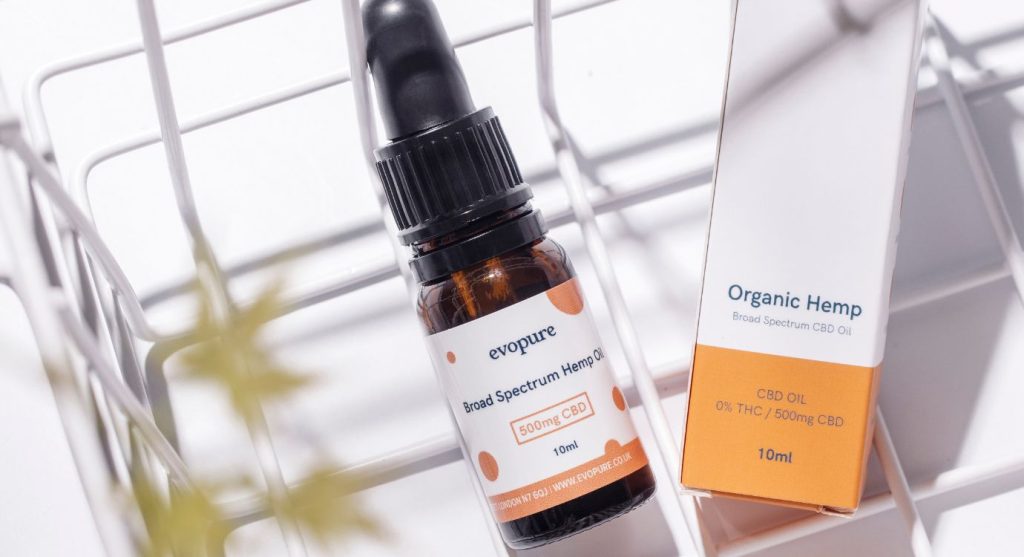
Cannabidiol is the full name for CBD.
CBD is a phytocannabinoid – one of more 100 cannabinoids present in cannabis and hemp plants – and we’re still counting!
CBD is the most abundant cannabinoid in hemp specifically, and research has shown CBD benefits to be wide and varied.
Read more: Is CBD legal in the UK
Cannabis Indica is a strain of the cannabis plant which originated in the Middle East. Indica is known for having a high CBD content with CBD to THC ratios close to 1:1.
Cannabis Sativa is a strain of the cannabis plant originating from warm parts of the world – such as Southeast Asia and Central and South America.
There’s a general perception that Sativa ‘highs’ are energising and encourage creativity, but research is increasingly indicating that understandings of these dichotomies between cannabis breeds are likely not very accurate.
While most people know about THC and CBD these days, Cannabigerol – or CBG – is a lesser known cannabinoid that’s been growing in presence in the public eye.
CBG is the chemical parent of both CBD and THC, and is thought to have interesting restorative properties of its own.
Read more: CBG vs CBD
The cannabinoid profile refers to the cannabinoids that are present in a specific hemp or cannabis plant, as well as their quantities and ratios.
“Full Spectrum”, “Broad Spectrum” and “CBD Isolate” can all be considered cannabinoid profiles, and are generally the most natural although there are others too that are typically made in a laboratory.
For example, some CBD brands may decide to add cannabinoids back into CBD isolate to create a unique product with their own ratios of ingredients.
10% off on your first order
Complete this one-minute quiz and find the right products for you.
Cannabinoid receptors are found in the human body and represent the way in which cannabinoids interact with the human body via the endocannabinoid system.
CB1 receptors are primarily found in the brain and spine. They are thought to help us regulate our sleep, appetite, memory, and to manage pain.
CB2 receptors are found throughout the body and are thought to be part of the body’s immune response and to play a part in reducing and managing inflammation.
CB3 receptors are theorised to exist by many scientists but are as of yet unproven. If they exist, these could be the key to figuring out how cannabinoids interact with the endocannabinoid system.
Cannabinoids is a term used to refer to the range of diverse chemical compounds that are found in the cannabis or hemp plants in differing amounts and ratios.
CBD and THC are both cannabinoids, although there are over 100 more that have been discovered.
Most cannabinoids are still a mystery to science, but it is thought that they work together in the ‘Entourage Effect’ to create results greater than the sum of their individual effects.
Read more: Guide to cannabinoids
Cannabis is a plant that is used to harvest marijuana for recreational smoking or for medical use.
It is illegal in the United Kingdom due to its high content of THC. This is in contrast to hemp, which is higher in CBD than THC and therefore legal.
To learn more about where cannabis is legal and where it isn’t, take a look at our guide to countries where CBD is legal around the world.
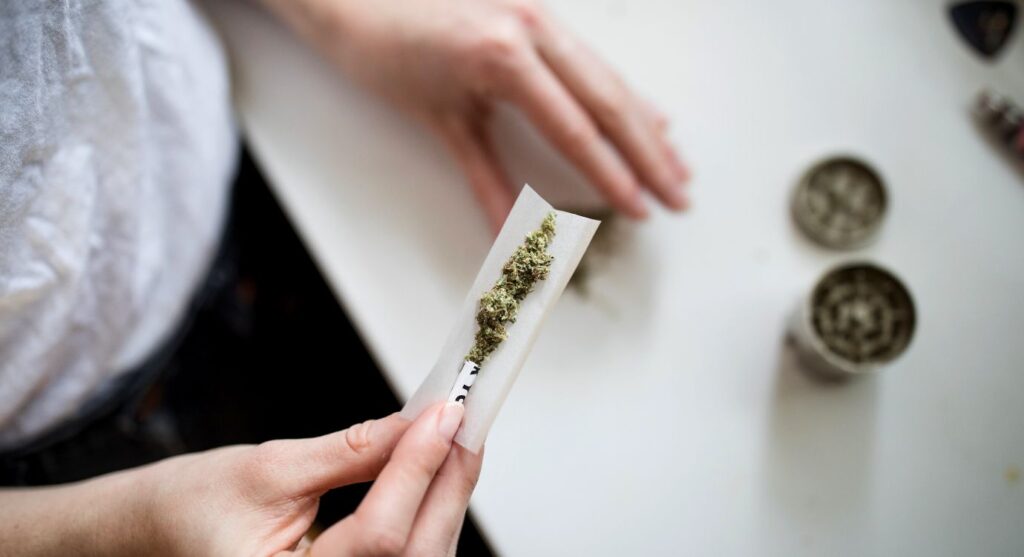
Capsules offer a way to take supplements or medication, where the liquid is contained within a gel casing, and swallowed. Some people prefer to consume CBD capsules ratehr than CBD oil as it’s an easy way to control dosage.
Read more: CBD oil vs capsules
A carrier oil is a plant-based oil that helps the active ingredient – in this case the CBD compound – makes its way into the bloodstream and to your body’s tissues and organs. MCT oil is commonly used as a CBD carrier oil.
CBC, also known as Cannabichromene, is a common cannabinoid found in both broad and full spectrum CBD products. CBC binds to the TRPV1, or vanilloid, receptor and the TRPA1, or ankyrin 1 receptor.
While we don’t know so much about CBC yet, it is one of the top six cannabinoids being included in ongoing medical research, suggesting scientists believe there may be more therapeutic benefits associated with CBD than we are currently aware of.
Previously, “concentrates” were only used to refer to highly concentrated forms of marijuana wax that was used for recreational smoking and contained much higher levels of THC than regular marijuana.
However, CBD concentrates now also exist, allowing people to vape or smoke highly concentrated forms of CBD.
These are generally not full or broad spectrum and therefore not recommended if you’re looking for CBD oil benefits for wellness.
It is also commonly known as CBD extract, CBD shatter, CBD dab oil or CBD wax.
Read more: Can you vape CBD oil?
CBD isolate is a substance that contains 99%-100% CBD and usually contains zero other cannabinoids, making it the antithesis to full spectrum CBD.
It is illegal in the UK to be sold as a food product or supplement, however it is legal for vaping purposes and is a common ingredients of CBD e-liquids.
CBD oil is a term used to generally describe CBD products and tinctures.
It can refer to pure, full or broad spectrum CBD oil, or CBD mixed with other oils.
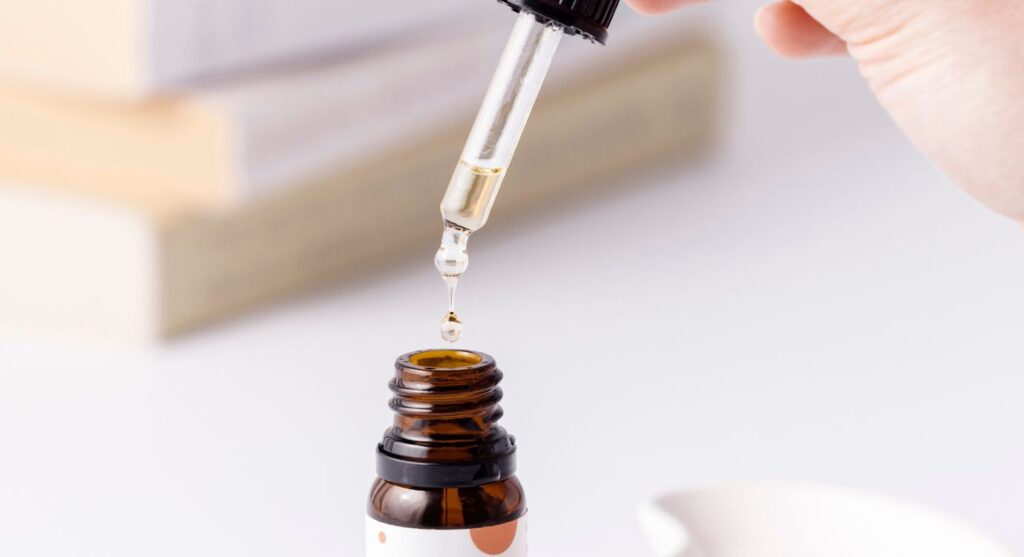
Cannabidivarin (CBDV) is a non-psychoactive cannabinoid, similar to CBD. While very little is known about CBDV, early research suggests that CBDV might help improve nerve related conditions, including seizures, pain and inflammation.
Cannabinol (CBN) is a phytocannabinoid – a cannabinoids derived directly from the cannabis plant.
It can also be produced synthetically.
CBN forms when THC degrades, due to exposure to heat, light or air. It’s essentially like THC but weaker – while CBN is mildly psychoactive, it generally doesn’t produce a ‘high’ like THC.
A Certificate of Analysis is a document that is issued as a part of Quality Assurance.
It confirms that all relevant regulations have been followed and therefore is necessary for any regulated product.
Read more: How to read CBD lab results

Controlled substances are drugs, chemicals or medications that are in some way regulated by the government – be that in manufacturing, possession or use.
Better known as THC, the cannabis consumer’s favourite cannabinoid is the psychoactive part of the cannabis plant and is responsible for the ‘high’ feeling thats results from consuming cannabis.
Delta-9 tetrahydrocannabinol is increasingly being studied for it’s wide range of clinical benefits, including pain management and seizure reduction. This has led to the legalisation of medical cannabis in many countries, including the UK.
Read more: CBD vs THC
Decarboxylation is the process during which cannabinoids are heated up, which activates the cannabinoids allowing them to more freely bind with cannabinoid receptors.
This has been found to increase the effectiveness of both THC and CBD, and we discuss it more in our guide to cooking with CBD.
Distillate is a concentrated cannabis extract of one specific compound – normally CBD oil or THC oil. Distillate is the base ingredient of most edibles and vapes, and can be either used on it’s own, or infused into other products.
Read more: What is CBD distillate?
Edibles are cannabis based food products, usually containing one or both of the active ingredients in cannabis: CBD and/or THC.
Edibles come in many forms – from chewies, to CBD brownies – with current trends seeing cannabis begin to be infused into savoury foods such as pesto, too.
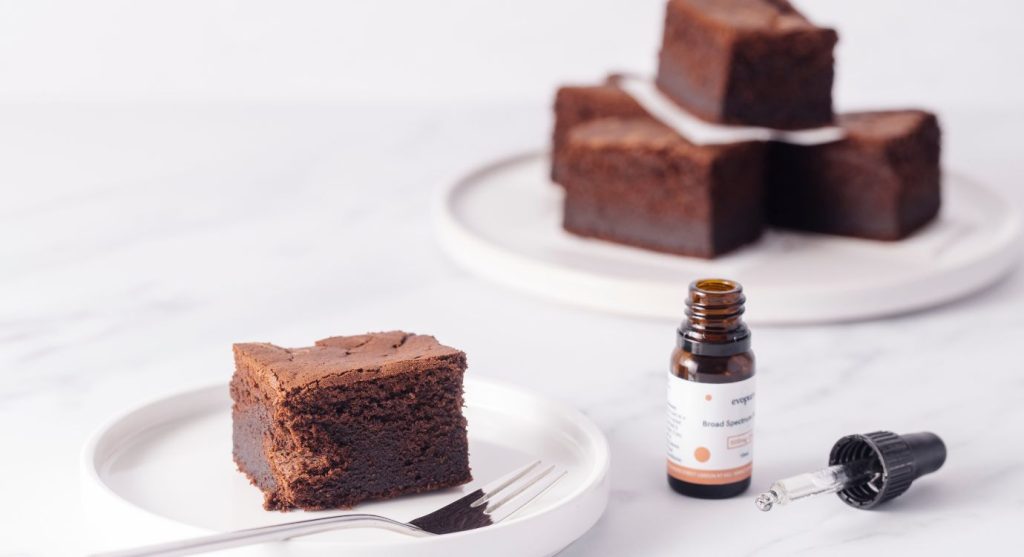
The endocannabinoid system is the human biological system that helps manage functions from the immune system and pain management to appetite and emotions.
This is the name given to the idea that cannabinoids when ingested together, work together with synergy and create a result that is greater than the sum of the individual cannabinoids.
It is because of the Entourage Effect that it cannabinoids are thought to be more effective when taken in the same amounts and ratios that they are present in the hemp plant as opposed to synthetically being blended together in different ratios.
Extraction is the name given to techniques used to separate and isolate specific cannabinoids from the cannabis plant, or to obtain single extract with a combination of desirable cannabis compounds; sometimes called whole plant extracts.
Extraction techniques include: alcohol and carbon dioxide based extraction.
Read more: How is CBD extracted?
Flavonoids are plant metabolites that are found in most plants and thought to provide a wide range of health benefits.
The flavonoids that are present in cannabis, hemp and full spectrum CBD are thought to be highly beneficial and a big part of the reason behind the Entourage Effect.
FDA stands for the United States Food and Drug Administration. The FDA is a federal agency of the Department of Health and Human Services, responsible for regulating drugs and medications in the US.
Full Spectrum CBD oil is similar to Broad Spectrum CBD oil but still has a small amount of THC present, too.
All other naturally occurring cannabinoids and other hemp ingredients are also present.
Hemp is a type of cannabis that contains very low THC content and very high CBD content.
Hemp oil can refer to CBD oil made from hemp, but it can also refer to hempseed oil. It is important to check the ingredients before purchasing any hemp oil to ensure you know which it is.
Read more: Hemp oil vs CBD oil
Hempseed oil is used for cooking. It is a very healthy way to cook since it is high in healthy fats, vitamins and minerals.
However, it contains zero THC and tiny trace amounts of CBD, so it is not to be used in the hope of any health benefits besides good nutrition.
Industrial hemp is a form of hemp that is legal to grow in the EU, and must contain less than 0.2% THC content. All UK legal CBD oils and products likely come from some form of industrial hemp.
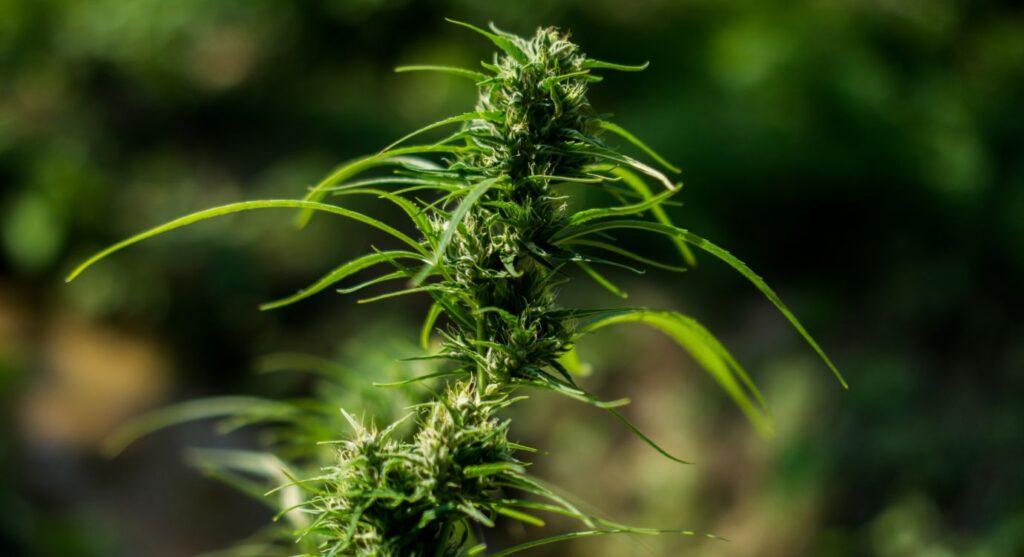
‘Organic’ products are grown naturally and free of pesticides, herbicides and other nasty chemicals that can help with the growing process.
These chemicals are thought to be dangerous to the human body while disrupting any potential benefits from CBD and other cannabinoids, which means that CBD oil should always be organic.
“Phyto” means “from plants”, so all cannabinoids from hemp or cannabis can also be considered phytocannabinoids.
CBD is one of the most abundant phytocannabinoids in the hemp plant.
A psychoactive substance is one that is mild altering or perception changing. THC is psychoactive and this is why it gives people the feeling of being “high”.
CBD is not psychoactive and so any CBD oil product with low THC content should not make you feel any different.
Sublingual refers to the method of placing a drug under your tongue to dissolve and absorb into your blood through the tissue there. All of our CBD oil can be ingested sublingually – it’s a method that offer great bioavailability to CBD.
Read more: How to take CBD oil

Terpenes are plant ingredients that give plants their unique aromas and flavours, and are thought to be the reason behind different cannabis strains and CBD products having such different flavours.
Like flavonoids, they are also a crucial part of the entourage effect and come with a lot of potential health benefits.
Also known as THC, Tetrahydrocannabinol is the psychoactive ingredient in cannabis.
As long as THC content in CBD products remains below 0.2%, they will be both legal in the UK and non-psychoactive, but higher amounts can lead to an experience of feeling “high”.
Tetrahydrocannabivarin (THCV) is a phytocannabinoid found in the cannabis plant, seen as being slightly similar to THC.
THCV is sometimes referred to as ‘diet weed’, in part because studies in mice have found that THCV can lessen appetite, increase feelings of fullness and boost metabolism – indicating that THCV may prove to be helpful in weight loss and for conditions such as type 3 diabetes.
A tincture is a concentrated liquid herbal extract, such as CBD oil. Tincture refers specifically to liquids which have been isolated using alcohol and water as a solvent.
Transdermal is a route of drug administration, where the drug is delivered topically – via the skin. This most commonly takes the form of transdermal patches, which provide a specific dose of medication that gets absorbed through the skin, and into the bloodstream.
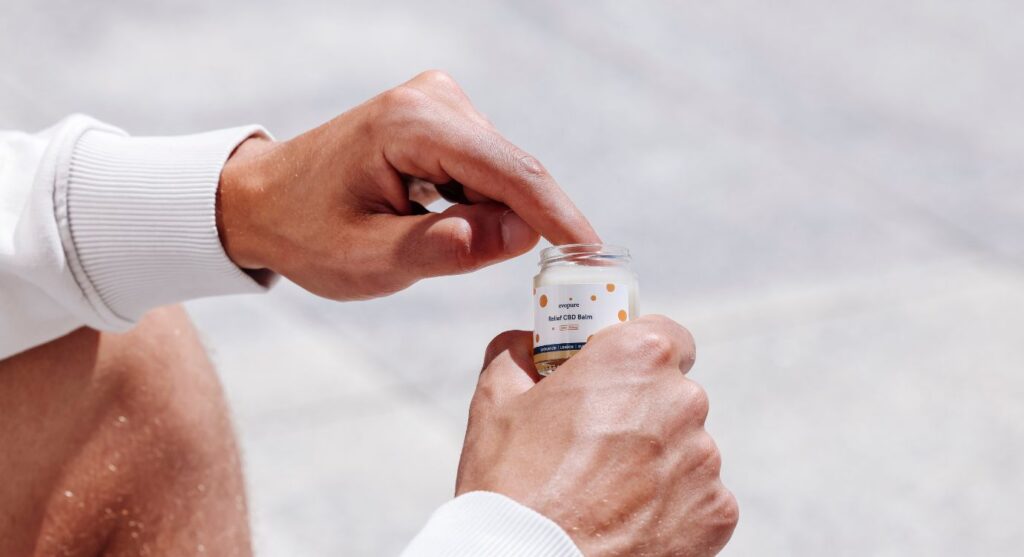
This one is relatively self explanatory – if something is water soluble, it can disolve in water.
In CBD land, water soluble CBD refers to CBD that has been processed to make it more water compatible – thus improving it’s bioavailability.
WhIle the popularity of water soluble CBD is on the rise, it’s still difficult to declare this CBD as being safe for consumption – more research is needed to determine the safety profile of water soluble CBD.
There you have it:a glossary of all the CBD terminology you’ll need to navigate the CBD community and make well-informed decisions.
Sign up for the Evopure newsletter:
This product is not for use by or sale to persons under the age of 18. It should not be used if you are pregnant or nursing. Consult with a physician before use if you have a serious medical condition or use prescription medications. A Doctor’s advice should be sought before using this and any supplemental dietary product. This product is not intended to diagnose, treat, cure or prevent any disease.
© Evopure Ltd. All rights reserved Terms & Conditions Cookie Policy Sitemap